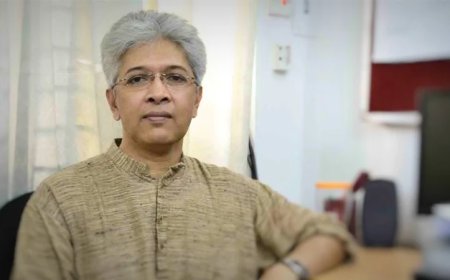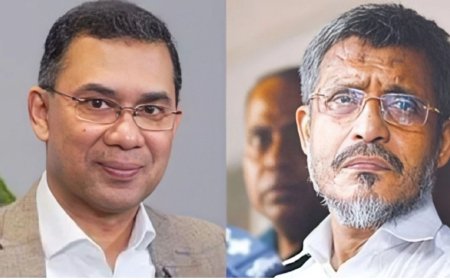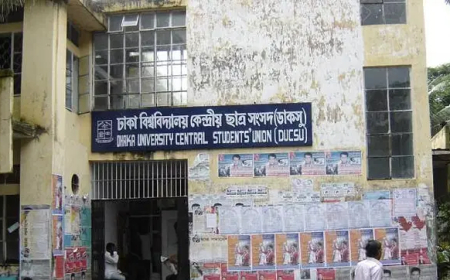It's time for a mandatory task, not a task force
The pressing need for leadership and action to recover what has been lost

"Extraordinary times call for extraordinary measures, as the students of Bangladesh demonstrated when they ignited the Monsoon Revolution, uncovering the largest theft in history. The extent of the looting was so vast, and Professor Yunus’s reputation so esteemed, that foreign governments and international agencies are now stepping forward, eager to aid in retrieving the stolen assets and prosecuting those responsible. Yet, it is astonishing that the government appears to be delaying these efforts.
To be fair, the government has successfully handled some issues, such as the Bangladesh Bank's diligent efforts to reduce arrears without devaluing the currency. Personally, as my past writings show, I’ve supported this interim government, believing it to be our best chance at implementing reforms and avoiding a repeat of the last 15 years with new faces. Professor Yunus has consistently welcomed feedback, from both media and expatriates, and it’s in that spirit that I address today’s topic.
Browsing high-end used car sites and art auctions in the UK reveals an intriguing trend: possessions of the looters are being offloaded, often at marked-down prices, suggesting a quick sale. The funds from these sales are unlikely to return to Bangladesh, instead likely funneled into cryptocurrency or other hard-to-trace assets. Meanwhile, looters worldwide are securing top legal teams to prepare defenses against anticipated claims.
The real shock here isn’t the looters’ actions—it’s the government’s inaction. Why hasn’t Bangladesh requested platforms to halt these sales, asserting the nation’s claim? Why hasn’t a legal team been appointed to freeze these assets?
The answer is straightforward: no legal team has been appointed yet. Despite the establishment of a task force in early October to address asset recovery, its first meeting won’t be held until mid-November, by which time many assets may already be concealed in cryptocurrency. The government’s passive approach is perplexing.
In fact, the limited progress achieved so far has largely been due to a handful of dedicated volunteers and investigative journalists, rather than government intervention. There is a pervasive attitude of defeatism, doubting the feasibility of asset recovery. Imagine if the students who sacrificed their lives had shared this view—we wouldn’t be here today.
Asset recovery is possible. Other countries have done it, though it’s never easy. Bangladeshis may be so accustomed to corruption that they overlook the tools available internationally. For example, the U.S. Magnitsky Act, originally used against Russian oligarchs, has been leveraged in various corruption cases, like South Africa’s Gupta case.
Foreign governments are already offering assistance. Following an Al Jazeera report on a single individual, six UK MPs convened to discuss the matter, and several UK agencies have already sent teams to Bangladesh. Yet they’ve found the Bangladesh side uncoordinated, disorganized, and devoid of urgency. Our bureaucracy’s apparent indifference is hard to understand. For the first time, international support is universally aligned, and we are missing this opportunity.
The disarray is evident at all levels. While the Bangladesh Bank focuses on the banking looters, it’s not pursuing members of the ruling family who may have embezzled funds, as that supposedly falls outside its jurisdiction. So, whose jurisdiction does it fall under, and what coordinated steps are being taken with foreign agencies?
We cannot make excuses by citing countries like Nigeria, which took decades to recover embezzled assets. Most other governments lacked the widespread international support our administration currently enjoys. Unfortunately, several advisors in the cabinet are overburdened with multiple portfolios, resulting in critical issues being overlooked.
Ultimately, the choice is simple. If the government doesn’t raise the urgency and demonstrate results in asset recovery and accountability, it sends a message that the best career path in Bangladesh is to illicitly amass wealth and stash it abroad. It would imply there’s no disgrace, no consequences—just a lucrative retirement. We might as well start teaching embezzlement at universities.
Task forces are suited to long-term reforms and policy changes. They’re utterly inadequate for urgent situations like this.
Criticism is easy, and words are cheap, so what would I do? One lesson I learned on Wall Street is that accountability and authority are essential to getting things done. This task is urgent enough to warrant appointing a single person to lead the entire asset recovery effort, with direct reporting to the chief advisor and the power to ensure agency cooperation and assemble necessary evidence.
This cannot be left to bureaucratic turf wars. The leader should be a proven, results-driven individual, ideally with international experience to navigate dealings with global agencies. This should not be an added responsibility for an already stretched cabinet member. Expanding the cabinet is clearly needed here.
To succeed, Professor Yunus should personally engage with foreign leaders to coordinate efforts with this appointed lead. Additionally, hiring international law firms with asset recovery expertise is essential. They typically work on a commission basis, taking a portion of what they recover, which is a worthwhile trade for securing any significant assets rather than recovering nothing.
If we fail to act decisively now, we dishonor the students who sacrificed their lives for a better future and risk normalizing looting as consequence-free. Professor Yunus, there’s a time for task forces, but this is a time for decisive action. Only you can make it happen."
What's Your Reaction?





















































































